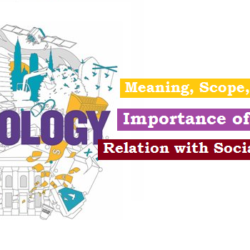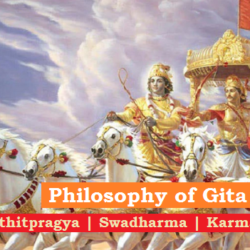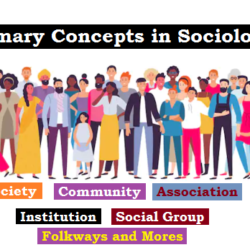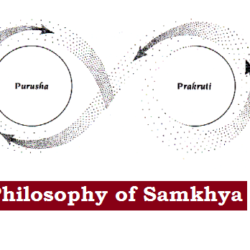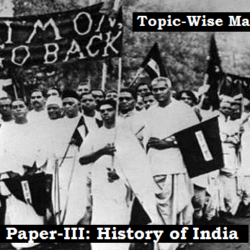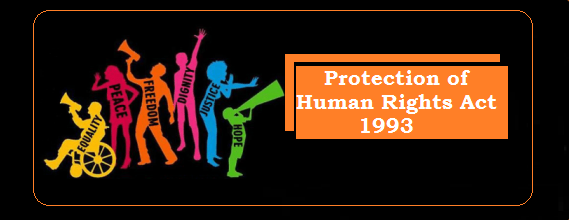
It’s an Act to provide for the constitution of a National Human Rights Commission and State Human Rights Commission in States and Human Rights Courts for better protection of Human Rights and for matters connected.
Background
Universal Declaration of Human Rights:
- United Nations General Assembly (UNGA) adopted and proclaimed Universal Declaration of Human Rights on 10 December 1948, as shared standard yard stick to protect human rights across the globe.
- It recognizes inherent dignity and the equal and inalienable rights of mankind as the foundation of justice, freedom and peace in the world.
- The International Human Rights Day is observed every year on December 10 to commemorate adaptation of Universal Declaration of Human Rights.
| Universal Declaration of Human Rights (UDHR) |
| Year 2023 marks the 75th anniversary of the Universal Declaration of Human Rights. Theme for 2023 was Freedom, Equality and Justice for All. Article 1: all human beings are born free and equal in dignity and rights. Article 2: everyone is entitled to all the rights and freedoms the declaration sets out, “without distinction of any kind, such as race, colour, sex, language, religion, political or other opinion, national or social origin, property, birth or other status. It is not a legally binding treaty in itself. However, its principles have been widely adopted and integrated into the legal frameworks of many nations. |
The Paris Principles:
- The Paris Principles were adopted by United Nations General Assembly (UNGA) in 1993.
- They list a number of responsibilities for national institutions concerning its autonomy, independence, pluralism and wide-ranging functions in order to effectively protect and promote human rights.
- The Paris Principles is a set of international standards which frame and guide the work of National Human Rights Institutions (NHRIs).
Definition of Human Rights: The rights relating to life, liberty, equality and dignity of the individual guaranteed by the constitution or embodied in the international covenants and enforceable by courts. (Section 2 of the Act)
National Human Rights Commission
The National Human Rights Commission may inquire into violation of human rights only in respect of matters related to any of the entries enumerated in List I (Union List) and List lll (Concurrent List) in the Seventh Schedule to the Constitution.
Constitution: The Central Government shall constitute a body to be known as the National Human Rights Commission to exercise the powers conferred upon

Composition: The Commission shall consist of
- A Chairperson who has been a Chief Justice (or a Judge#) of the Supreme Court;
- One Member who is or has been, a Judge of the Supreme Court;
- One Member who is, or has been, the Chief Justice of a High Court;
TwoThree Members# who are human rights’ experts out of which one shall be a woman#.- In addition, the Chairpersons of
fourfollowing National Commissions of (1. Minorities Commission 2. Backward Classes# 3. Protection for Child Rights# 4. Schedule Caste Commission 5. Schedule Tribe Commission 6. Women Commission 7. Chief Commissioner for Persons with Disabilities#) serve as ex officio members.
#After the Act was amended in 2019.
Appointment:
- The Chairperson and the Members of the Commission are appointed by the President of India, on the recommendations of a committee consisting of:
- The Prime Minister (chairperson)
- The Home Minister
- The Leader of the Opposition in the Lok Sabha
- The Leader of the Opposition in the Rajya Sabha
- The Speaker of the Lok Sabha
- The Deputy Chairman of the Rajya Sabha
Term: The chairman and members hold office for a term of five three# years or until they attain the age of 70 years, whichever is earlier and shall be eligible for reappointment#. They are not eligible for further employment under the central or state government.
#After the Act was amended in 2019.
Removal:
- The Chairperson or Members may be removed by the President on the ground of proved misbehavior or incapacity after inquiry by the Supreme Court.
- The President may remove the Chairperson or any Member for:
- Being insolvent
- Engaged in paid employment
- Infirmity of mind or body
- Unsound mind
- Convicted and sentenced to imprisonment (for an offence which in the opinion of the
President involves moral turpitude).
Functions and Powers of the Commission
Inquiry:
- Inquire, suo motu or on a petition into complaint of violation or negligence of human rights by a public servant.
- Intervene in any proceeding of a court involving violation of human rights
- Visit any jail or any other to study the living conditions of the inmates and make recommendations
Review and Recommendation:
- Review the safeguards provided under the Constitution or any law for the protection of human rights and recommend measures for their effective implementation
- Review the factors, including acts of terrorism that inhibit the enjoyment of human rights and recommend appropriate remedial measures
- Study treaties and other international instruments on human rights and make recommendations for their effective implementation
Research and Awareness:
- Undertake and promote research in the field of human rights
- Spread human rights literacy among various sections of society and promote awareness of the safeguards available
- Encourage the efforts of non-governmental organizations and institutions working in the
field of human rights
Annual and Special Reports of the Commission
- The Commission to submit an annual report and special reports to the Central Government and to the State Government concerned.
- The Central Government and the State Government to cause the annual and special reports to be laid before each House of Parliament or State Legislature respectively, along with a memorandum of action taken on the recommendations of the Commission and the reasons for non-acceptance of the recommendations.
| Limitations of NHRC |
| 1. NHRC does not have an investigating wing of its own and it asks the concerned Governments to investigate the cases. 2. It cannot investigate the cases registered after one year of incidence. 3. It does not have the power to enforce its decisions. It can only make recommendations to the concerned authorities. |
State Human Rights Commission
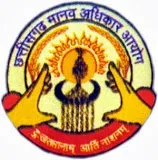
A State Commission may inquire into violation of human rights only in respect of matters related to any of the entries enumerated in List II (State List) and List lll (Concurrent List) in the Seventh Schedule to the Constitution.
Constitution: The State Government shall constitute a body to be known as the State Human Rights Commission to exercise the powers conferred upon.
Composition: The Commission shall consist of
- A Chairperson who has been a Chief Justice of the High Court;
- One Member who is or has been, a Judge of the High Court;
- One Member who is, or has been, the District Judge in that State;
- Two Members who are human rights’ experts;
Appointment: The Chairperson and the Members of the Commission are appointed by the Governor of the State, on the recommendations of a committee consisting of:
- The Chief Minister (chairperson)
- The Speaker of the Assembly
- The Home Minister
- The Leader of the Opposition in the Assembly
- The Leader of the Opposition in the Legislative Council (if exists)
- The Chairman of the Legislative Council (if exists)
Term: The chairman and members hold office for a term of five years or until they attain the age of 70 years, whichever is earlier. They are eligible for re-appointment for another term of five years (not available in NHRC members). They are not eligible for further employment under the central or state government.
Removal:
- The Chairperson or Members may be removed by the President on the ground of proved misbehavior or incapacity after inquiry by the Supreme Court.
- The President may remove the Chairperson or any Member for:
- Being insolvent;
- Engaged in paid employment
- Infirmity of mind or body;
- Unsound mind
- Convicted and sentenced to imprisonment (for an offence which in the opinion of the
President involves moral turpitude).
Human Rights Courts
- For speedy trial of offences of violation of human rights, the State Government may specify for each district a Court of Session to be a Human Rights Court.
- For every Human Rights Court, the State Government shall specify a Public Prosecutor or appoint an advocate who has been in practice as an advocate for not less than seven years, as a Special Public Prosecutor for the purpose of conducting cases in that Court.
| Questions from CGPSC Mains Examinations |
| 2022 Discuss the constitution, appointment of the Chairperson and other members and the functions and powers of the National Human Rights Commission. (15 marks) राष्ट्रीय मानवाधिकार आयोग के गठन, अध्यक्ष एवं अन्य सदस्यों की नियुक्ति तथा आयोग के कृत्य एवं शक्तियों का वर्णन कीजिये। (15 अंक) |
| 2021 In who’s recommendation and who appoints the chairman and members of National Human Rights Commission? (02 marks) राष्ट्रीय मानव अधिकार आयोग के अध्यक्ष एवं सदस्यों की नियुक्ति किसकी सिफारिस पर की जाती है और कौन करता है? (02 अंक) |
| 2020 Comment on the Universal Declaration of Human Rights and the role of Human Rights Commission in Communist-Dictatorship Government. (10 marks) मानवाधिकारों की सार्वभौम घोषणा और कम्युनिस्ट-तानाशाही सरकार में मानवाधिकार आयोग की भूमिका पर टिप्पणी कीजिए। (10 अंक) |

 Home
Home Syllabus
Syllabus Contact Us
Contact Us




